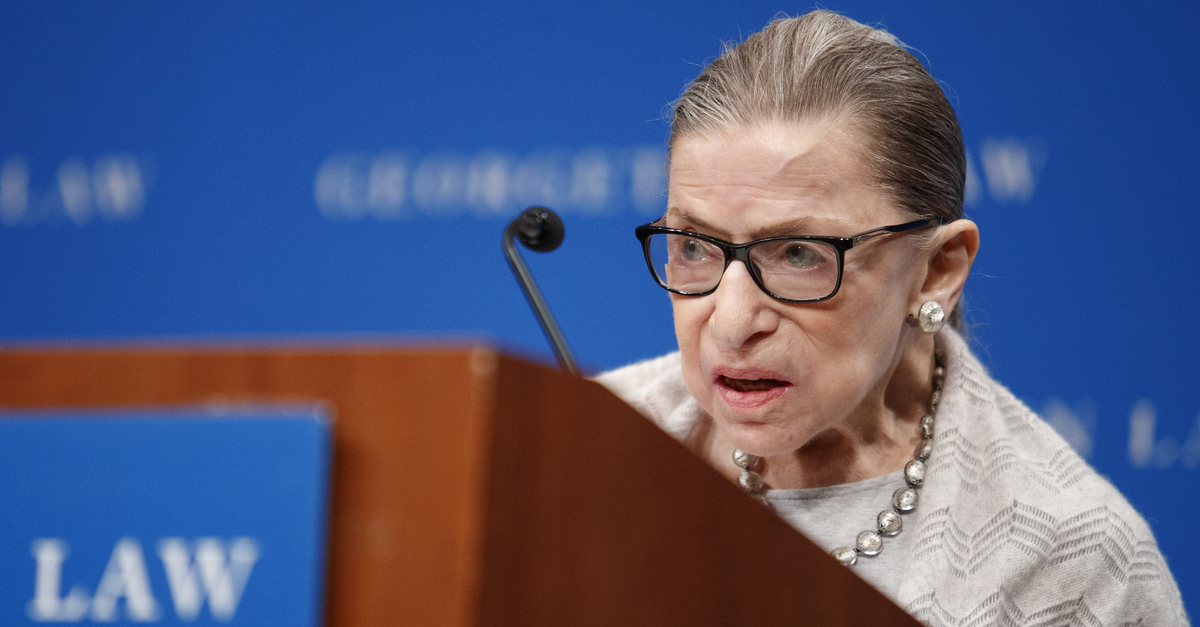
United States Supreme Court Justice Ruth Bader Ginsburg had some pragmatic advice for those hoping to make the Equal Rights Amendment (ERA) part of the U.S. Constitution: start over.
Ginsburg spoke at a Georgetown Law School event on Monday and said that she “would like to see a new beginning”–in the form of a new ERA, rather than breathing life into a failed attempt from decades past.
Ginsburg’s comments come at a critical time for the ERA. In January, Virginia became the 38th (and potentially final) state to ratify the ERA. There is significant controversy, however, over the Amendment’s future. Five states have moved to rescind their earlier approvals, and others ratified only after the initial deadline had passed. Several lawsuits have already attempted to block the Amendment, while another alleges that National Archivist David S. Ferriero must record the passage of ERA or risk violating his duties under the U.S. Constitution.
Ginsburg, a longtime supporter of the ERA and a champion of women’s equality, pointed out a problem with the movement to ratify the ERA in its existing form. “There’s too much controversy about late comers,” Ginsburg said. “Plus, a number of states have withdrawn their ratification. So if you count a latecomer on the plus side, how can you disregard states that said we’ve changed our minds?”
In addition to opining on the procedural questions, Ginsburg also discussed her view on the substance.
Many opponents of the ERA attack the Amendment on grounds that it simply is “no longer necessary.” After the passage of Titles VII and IX, which mandated equality for women in employment and education respectively, many argued that the ERA was redundant.
Pressed on Monday about whether existing federal law brings women’s rights to “the same place where you would be with the ERA,” Ginsburg answered, “not quite,” noting that every Constitution in the world written since 1950 has the equivalent of an Equal Rights Amendment.
Ginsburg said that even if amending the Constitution to include blanket equality for men and women is largely symbolic, “it is a very important symbol.”
[Image via Tom Brenner/Getty Images]